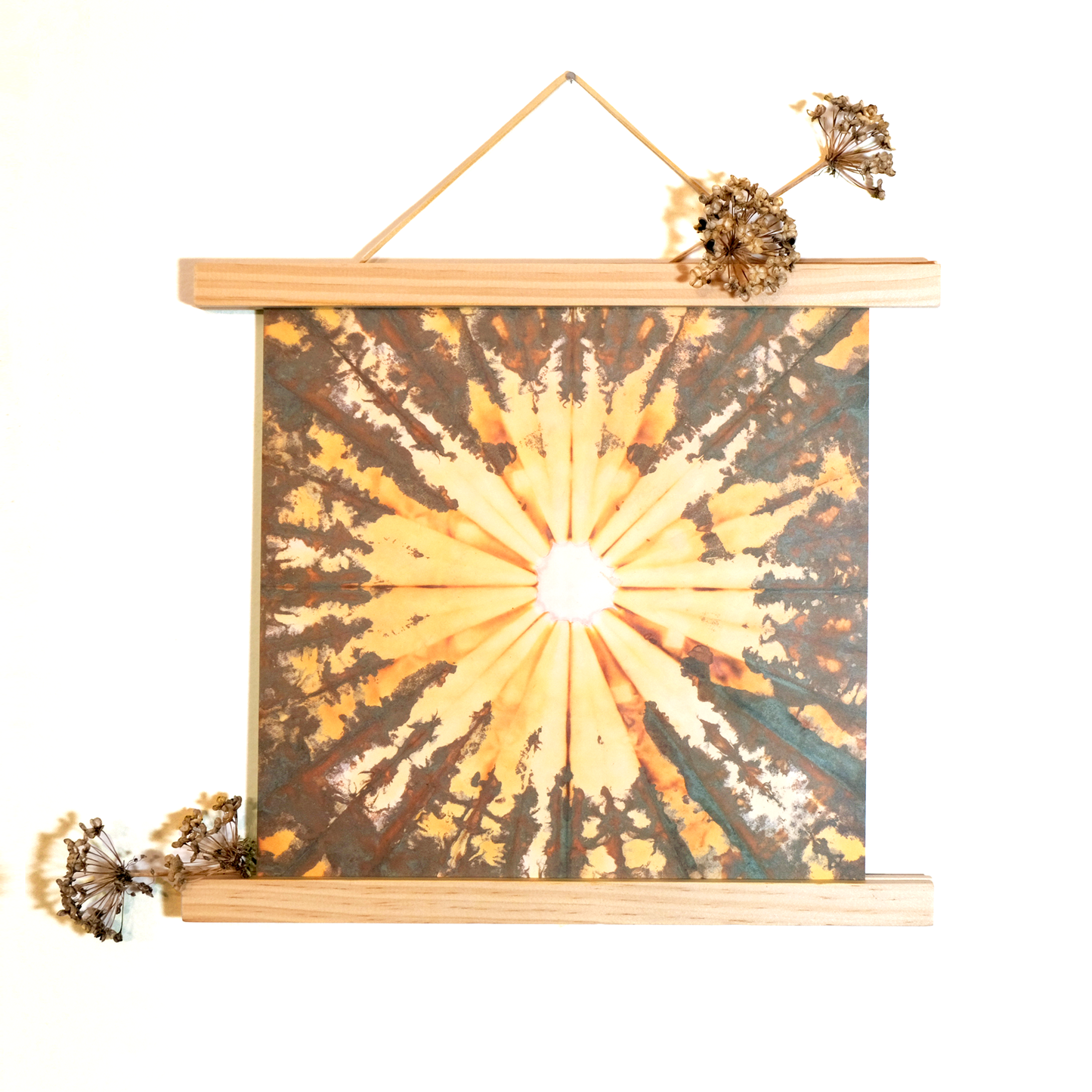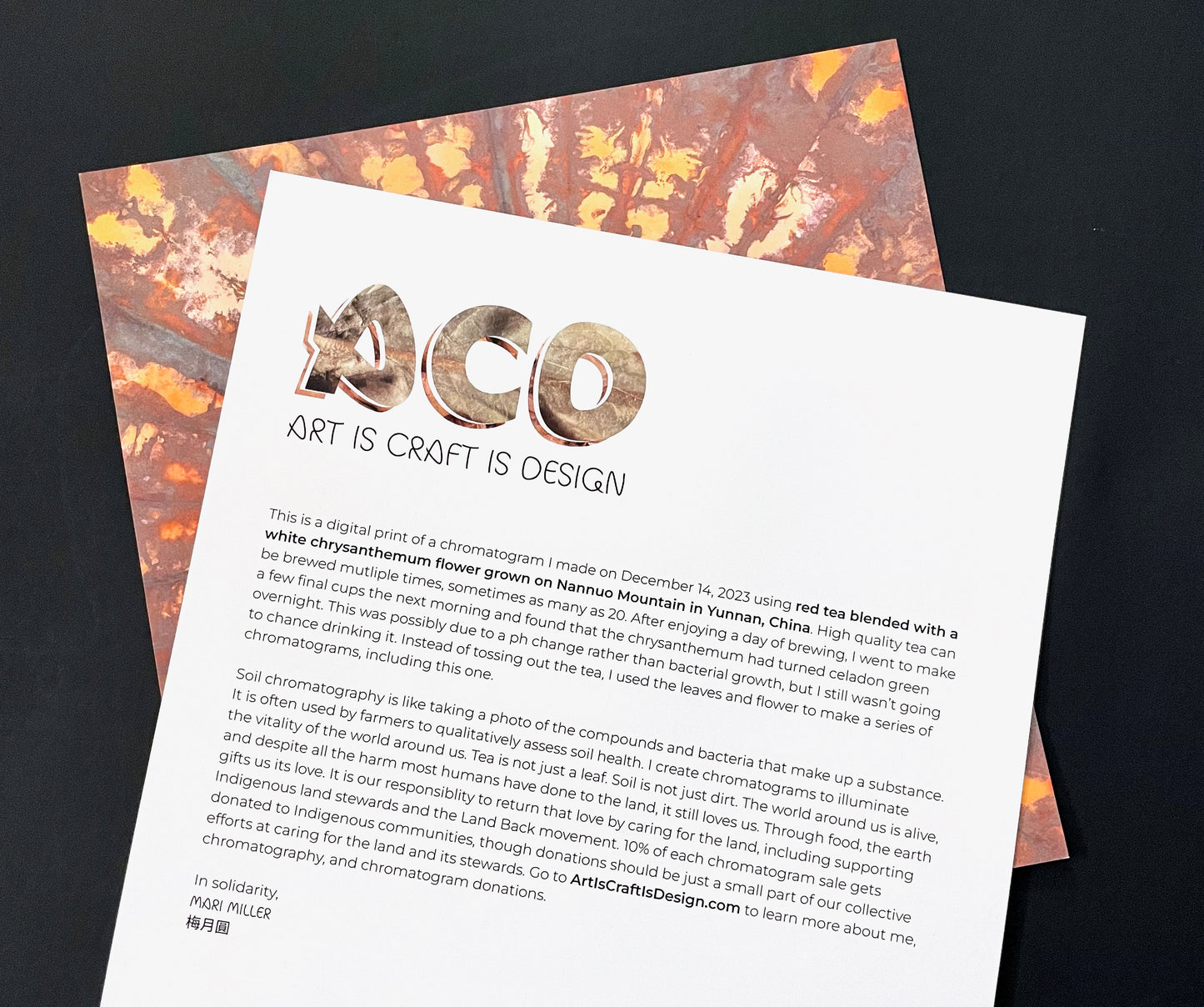Art Is Craft Is Design
Red Tea with Chrysanthemum Chromatogram Giclée Print
Red Tea with Chrysanthemum Chromatogram Giclée Print
Couldn't load pickup availability
Soil chromatography is like taking a photo of the compounds and bacteria that make up a substance.
This listing is for a giclee print (aka a digitally printed copy) of a chromatogram I made for my body of work titled The Land Loves Us. You will receive a 10" x 10" unframed reproduction print. Note that while I have uploaded photos that match the prints' colors as closely as I can, colors may vary among different computer monitors. What appears on your monitor may not reflect the exact shades of color in the print.
Red Tea blended with a White Chrysanthemum that turned Green overnight
When the British exported stolen tea from China to Britain, they mistranslated the words "hong cha" or "red tea", into "black tea." Most of the tea sold in the Global North as black tea is actually red tea; black tea is a whole other category of tea.
The original chromatogram of this print was made with red tea that was blended with a white chrysanthemum flower. High quality tea can be steeped several times. I spent a day brewing this tea, and then the went to make a few final cups the next morning. However, I found that the chrysanthemum had turned celadon green overnight! While I certainly wasn't going to drink more of this tea, I didn't want it to go to waste. So I made a series of chromatograms with it. They had beautiful, silvery areas on them that my other red tea chromatograms didn't so I assume that those areas came from the green chrysanthemum. In this reproduction, the metallic areas appear as a dark green. Because from certain angles, the silvery areas on the chromatogram appear green.
Share







